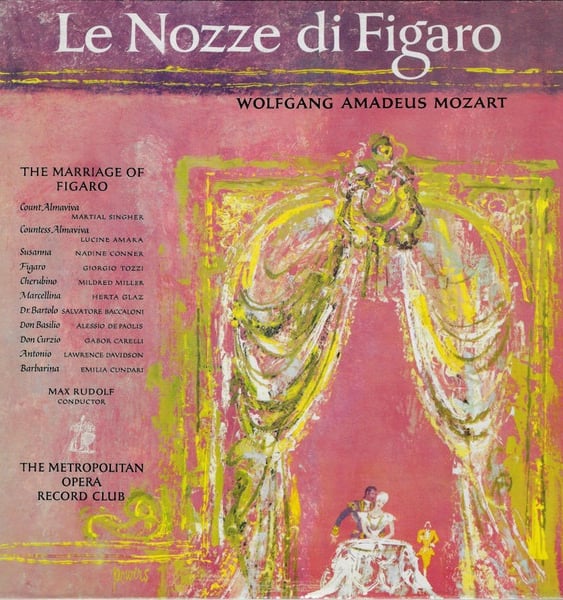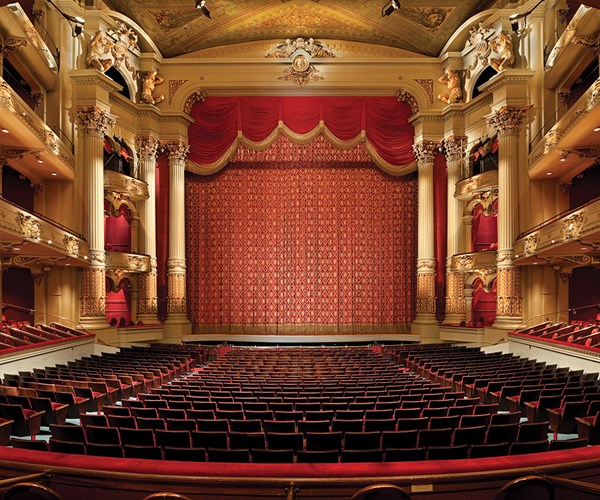Beginnings
3/9/20123 min read
IIt all began with 'The Marriage of Figaro.' At the age of ten I caught sight of a
dual-language booklet lying open in our music room: the libretto of the Metropolitan
Opera Record Club recording of the opera; and two lifelong obsessions were born -
opera and language. My parents played the LP for me, and I was hooked - Giorgio Tozzi
singing 'Cinque, dieci' changed the course of my life. Piano lessons soon followed, and
shortly therefter I made a stab at my first opera, 'Il Mago di Oz'. The 'opera' was not in Italian,
but it had to have an Italian title. I still have the score, with the opening 'Apertura' - for some
reason I thought that was how you said 'overture' in Italian. The first three-chord opera -
anticipating the minimalists by several decades? - Definitely NOT the work of a prodigy
We lived in rural Pennsylvania. I remember my intense disappointment at not being taken to a
production of Aida in Altoona, 75 miles away. When we moved to South Jersey a year or so
later, my parents richly compensated for this by taking me to Rigoletto at the Academy of
Music, with Cornell MacNeill, Eva Likova and Eugene Conley - second row center. Beautiful
painted sets, and I still think it must have been an amazing performance. My father spoke
years afterwards about the awe aroused by the first notes, one trumpet and one trombone
articulating the theme of the curse.
I was blessed with music-loving parents - not musicians, but passionate music-lovers. Dad came home late from work on Friday nights, and they celebrated with steak, wine and music. I would creep out of bed and listen on the staircase while they played Liszt's Les Préludes, Bizet's 'L'Arlesienne' suites, Franck's D minor symphony, the Brahms horn trio, or Strauss's Till Eulenspiegel. One day Dad came home with the London (Decca) recording of Don Giovanni, complete with score. And then I began ordering records myself, from The Record Hunter in New York; I think my first purchase was the Gigli/Dal Monte/de Fabritiis Madama Butterfly.
As a teenager in South Jersey, I soon discovered Philadelphia and spent many Saturdays there, dividing my time with the Free Library (still an image of Paradise for me), with its astonishing collection of scores and its listening booths, where I heard Stravinsky's 'Rossignol' for the first time, bookstores, and Elkan-Vogel's gorgeous little hole-in-the-wall music store. I encountered like-minded friends in high school, and discovered the thrill of buying my own tickets to the opera - $2.50 for a balcony seat - with Bob Gordon or Pete Waldo or John Davis, and later with girls - Lohengrin, Aida, Un ballo in maschera, Die Walküre, The Ballad of Baby Doe. And in the bookstores I was finding the wonderful Penguin bilingual anthologies of Italian, Spanish and German verse.
My friends were extending my musical horizons on both ends of the spectrum: Berg and Stravinsky on one end, and Bach and Vivaldi on the other.
I should mention that Woodbury High School offered four years of Latin, three of German and Spanish, all of which I took. And that free tickets to Philadelphia Orchestra concerts were often available - so I was able to hear the first American performance of Shostakovich's 4th; the immense washes of orchestral sound in that work were a revelation to me. Our high school also had a choir, conducted by James Freund; we performed at least one Bach cantata (BWV 142 - I sang the bass solo), and lots of Brahms, including 'How lovely is thy dwelling place' from the Requiem. I was not in the orchestra, but I remember that they performed the overture to Die Meistersinger at our graduation.
I learned enough Italian from following libretti that I was admitted to a third-year course at Middlebury; and the French I picked up from Gounod and Bizet served me in good stead when I moved to Montreal in 1968.
I should also pay homage to our church choir, conducted by my piano teacher, Dr. Starke: we sang a very mixed bag - I should say a deliciously mixed bag - ranging from Handel and Mozart to some pretty fusty Victoriana (Olivet to Calvary, by J. H. Maunder, whose name, I fear, was sadly self-descriptive). A major thrill was hearing the organist's wife, Iris Starke, our soprano soloist, boldly flinging out her laserlike high C in the Inflammatus from Rossini's Stabat Mater, recast as 'None else shall deliver us!'
To be continued!




